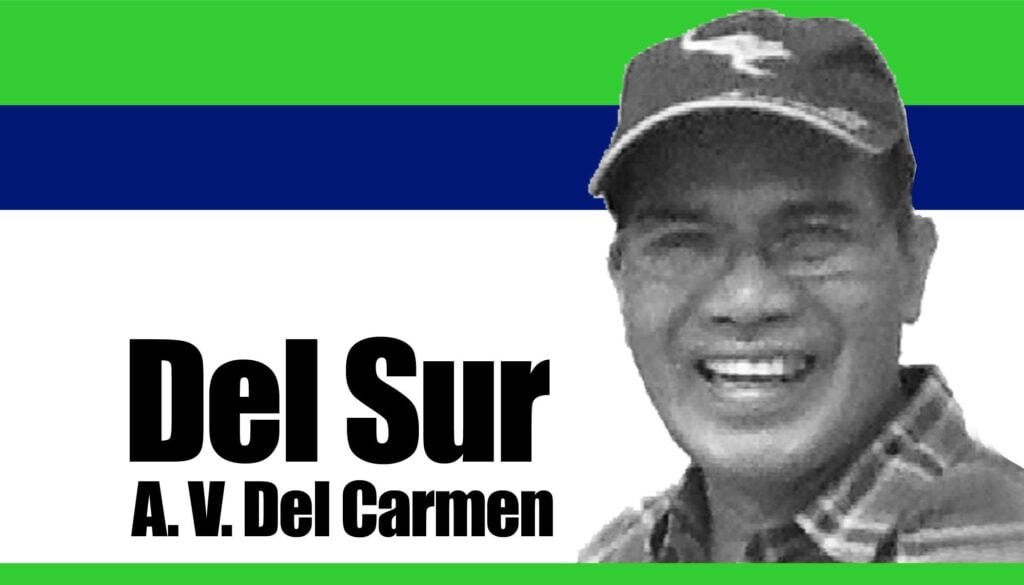
Freedom lovers in the country and elsewhere remember this week as the People Power or the EDSA Revolution of 1986.
The bloodless uprising ended the 20-year regime associated with abuse, corruption profligacy, plunder and human rights violations.
As local government units are directed to hold commemorative activities for the 36th Anniversary of the EDSA Revolution, they are instructed to refrain from political overtones, apparently for them to stay neutral due to the ongoing election campaign season.
It cannot be denied, however, that political implications come into play for, after all, People Power was a political statement and a testament to popular will to tear down the clutches of tyranny and repression.
We mark that turning point in our reaction’s history as we cherish and relive this week the values, principles and spirit of what EDSA Revolution has stood for in the people’s quest for freedom and democracy.
We must always remember the dark days that gave birth to People Power or, as what others say it, “We will never forget.”
***
Another recollection stirred my senses when I heard radio reports early last week about the ambush of a police patrol vehicle that left two cops and a young civilian bystander injured in Barangay Biao in Binalbagan, located about 70 kms. from Bacolod City.
Under usual circumstances in the not-so-distant past, the news last week would have not merited high public interest.
Biao, located about 15 kms. from the poblacion, is nestled in the uplands of the sugar-farming town.
It was a well-known rebel lair at the height of insurgency in Negros Island in the 1980s.
Accounts showed that many residents were forced to become rebel supporters and sympathizers, including some children who served as couriers of the insurgents.
Last week’s report evoked memories of my experiences in Biao, shortly after I become a Service-Learning practitioner after I attended an Asian Conference on civic engagement for Christian faculty held in Chiangmai, Thailand in 2002.
One weekend after the opening of the school year, I got an invitation from the grade school principal, the late Bong Navarro, requesting me and my university students to conduct a journalism and writing training for the school children.
The opportunity for grassroot service coupled with the long-felt sense of adventure beyond my comfort zone, especially after years of poring over insurgency reports piled up daily on the editor’s desk, outweighed the doubts and fears that I accepted the principal’s invitation.
The discussion on planned for the first trip to Biao was met with excitement by many of my students but when the day came, only three students showed up at our meeting place that 4:30 a.m. A number of those who had earlier signified to join the trip failed to secure permission after their parents learned that our destination had been a high-profile rebel hideaway.
The word-of-mouth and first-hand testimonies of the “pioneer students” spread that the number of trip joiners doubled each time we had our weekend schedule, that in our final trip for the school year, practically almost all of the whole class of 40 came to participate. That final activity was a village-wide immersion which was capped by a grand production night showcasing the students’ talents to highlight the community fiesta.
Biao gave my students life-long lessons and greater awareness of social issues. Through those trips, they came face-to-face with the glaring facets of poverty, hunger, economic inequalities, unemployment, limited educational opportunities for the youth, malnutrition, the nagging peace problem and a host of other concerns anchored on social justice agenda.
The journalism lessons we offered to the schoolchildren were expanded to include mothers’ classes, peace-building activities, sports training, other literacy lessons and even photo services for the pupils’ school ID cards. The school paper, which my students assisted in the production phase gave local pride when it was given unprecedented honors as among the winners in the news category of the National Schools Press Conference of the Department of Education.
Through the various activities held, the university students gained valuable lessons outside the classroom and, as my studies have shown, learned to become more socially conscious and caring citizens.
The experiences, which led to the realization of Service-Learning goals, have left a deep imprint in their hearts and minds that even today, years after their graduation, they engage in long conversation in the social media or in get-togethers whenever someone starts to recall their Biao exposure.
Through our Biao social classroom, the students also brought the GMA Kapuso Foundation to the village to donate footwear, school and food supplies. The activities also led to my participation, with the help of some students and alumni, in a study and eventual assistance from the International Labor Organization, which looked into the conditions of children in remote sugar plantation communities.
Sadly, the Biao project, while it had the blessings from the university extension unit, was put to a halt after more than two years when academic officials cancelled all students overnight schedule following a road accident during a bus trip of a group of students in their way to a southern community for their immersion.
Looking back, I occasionally get a spine tingling sensation when I think of the potential perils we faced, including abductions, which were common to them.
Thankfully, with God answering our prayers for safety and security and with the assurance of Biao community leaders, we managed to attain our goal – that of learning while serving others.
My Biao service opportunities paved the way for more than a dozen other S-L activities in other parts of Negros and even abroad.
I thank the Lord for these occasions of remembering and giving gratitude for the blessings He has given.
***
The memory of the righteous is a blessing, but the name of the wicked will rot. (Proverbs 10:7) – NWI




